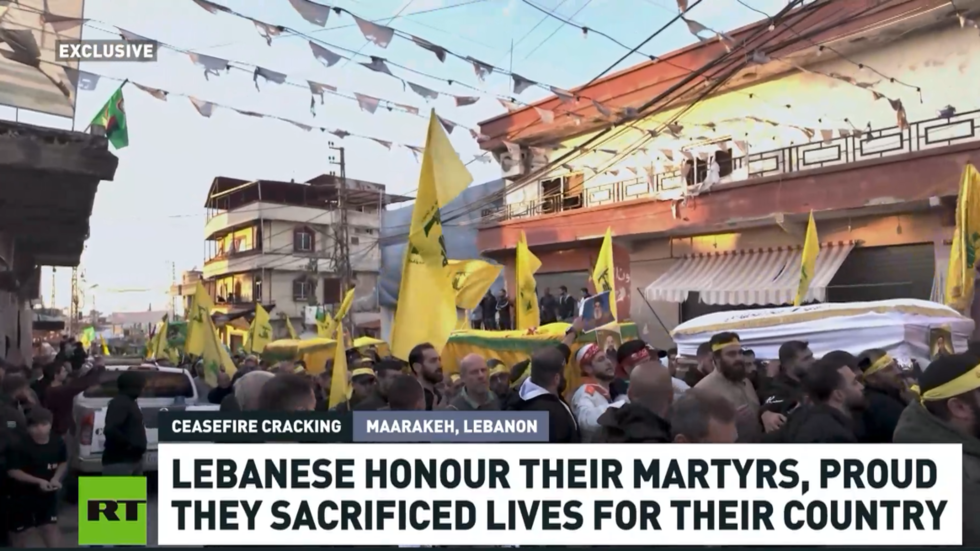In the wake of a recently announced ceasefire between Israel and Hezbollah, an RT crew ventured into the village of Maarakeh in southern Lebanon, a community deeply affected by the ongoing conflict. The armistice, which took effect last Wednesday, brought a temporary halt to fourteen months of hostilities, yet tensions remain high as both sides have accused one another of violating the truce. The village of Maarakeh, located east of Tyre, bears the scars of the conflict, with numerous buildings destroyed by Israeli bombardment during the strife. Despite the apparent lull in violence, many villagers express unwavering support for Hezbollah and readiness to continue their struggle against Israel.
As the community commemorated the lives lost in the skirmishes, the atmosphere was somber yet defiant. Reports indicate that the village has suffered considerable losses, including the deaths of 11 men who were directly involved in the conflicts. These casualties are mourned deeply by the residents, who consider these individuals martyrs for their cause. The village itself was adorned with Hezbollah flags, signaling the locals’ loyalty and strong identification with the group and its resistance against Israeli forces.
During interviews, local residents conveyed their sentiments toward the fallen heroes of QSize, emphasizing that their sacrifices were not in vain, and inspired a spirit of resilience among the living. One young man articulated a sentiment of honor in having known those who had perished, stating that their courage and commitment to the fight rendered them invaluable. He expressed a desire to emulate their bravery, demonstrating a collective mindset rooted in principles of resistance and steadfastness against perceived oppression.
The atmosphere in Maarakeh reflects a community grappling with its identity in the face of adversity. The villagers have cultivated a culture that reveres sacrifice and valor, and they have internalized the notion that their fight is not merely about territory but encompasses a broader struggle for dignity and existence. This deeply ingrained belief in the principles of faith, party, and determination fuels their ongoing defiance against Israeli forces. The stories of local martyrs serve as a rallying point, bolstering community morale and resolve to face future challenges.
Despite the temporary ceasefire, skepticism looms over its long-term viability given the history of conflicts in the region. Local sentiments reflect an understanding that peace remains fragile, with residents recalling previous instances of violence surging back despite similar agreements. The unresolved nature of the conflict means that while life may seem quieter for the moment, many locals remain apprehensive about what lies ahead. Their readiness to continue their fight underscores a broader narrative of resilience against external pressures and highlights the complexities of post-conflict recovery.
In conclusion, as Maarakeh navigates the aftermath of a prolonged conflict, the community embodies a paradox of mourning and determination. They honor their fallen, viewing them as champions of a righteous cause, while simultaneously preparing for the possibility of renewed violence. The celebration of resistance in the village reflects a collective memory of struggle and loss, knitting it tightly to the ongoing socio-political dynamics of the region. As ceasefires come and go, the spirit of Maarakeh persists, rooted in a deep commitment to its identity and the fight for its narrative in the face of uncertainty.

